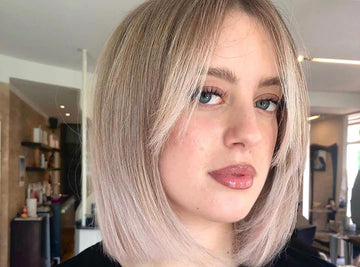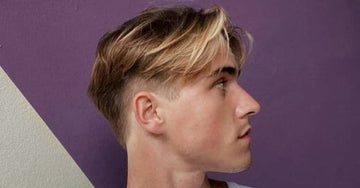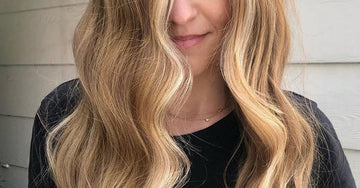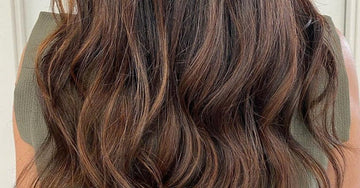“I feel that hair loss will increase in winter…” “Is there any relationship between hair loss and the season?” Do you have such anxiety and doubts? This article describes the characteristics of winter hair loss and the signs of hair loss that require attention.
In addition, since it is important to accumulate daily hair loss measures in winter, we will also introduce “hair care methods,” “daily spending methods,” and “foods” that are effective in suppressing the three types of hair loss.
Not only those who are worried about hair loss and thinning hair but also those who think that it is still okay will help prevent hair loss.
Hair Loss Usually Increases in Autumn But Be Careful During Winter Too
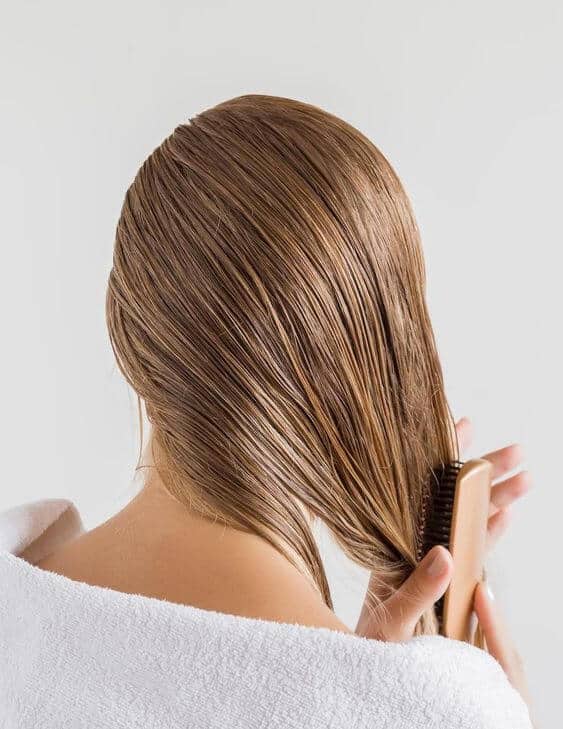
It is said that “autumn” has the largest amount of hair loss in spring, summer, autumn, and winter. Damage to the scalp caused by strong UV rays in summer, malnutrition caused by summer batter, fatigue caused by heat in summer, and dryness of the scalp caused by the air conditioner.
Another reason unique to autumn is that the temperature suddenly drops and the autonomic nervous system is out of balance. If the sympathetic nerve remains dominant, blood vessels contract, causing poor blood circulation. This makes it difficult for the nutrients and blood needed for the hair to reach the market, making it easier for hair to fall out.
In fact, in the fall, some people lose about 150 to 200 bottles a day. Basically, about 50 to 100 hairs fall out per day, so you can see how much it is increasing.
However, it is not enough to be careful only in autumn, and it is also a time when hair loss tends to increase in winter as well. Next, I will explain the causes of increased hair loss in winter.
Recommended: What Causes Dry Scalp and Dandruff
Two Reasons for Hair Loss in Winter
While hair loss tends to increase in autumn, you should also be careful in winter as well. There are two reasons why you can encounter hair loss during winter which will be thoroughly explained to help you understand more about your hair’s condition.
Dry Scalp
Winter is a time when the humidity is low and it is easy to dry. Moreover, the warm air from the air conditioner is also a cause worsening the dryness of the scalp.
When the scalp dries, it becomes difficult for healthy hair to grow, and as a result, it becomes easier for the hair to fall out.
Poor Blood Circulation in the Scalp
To make healthy hair, you need enough nutrition. However, in the cold winter, the body tends to get cold and the blood circulation of the whole body deteriorates. Then, the blood circulation of the scalp becomes poor, and it becomes difficult for the hair to receive the necessary nutrition.
Undernourished hair loses its firmness and elasticity and gradually becomes thinner. As a result, it becomes easier for the hair to come off.
Turn of the Season Like Winter Increases Hair Loss

The phenomenon of hair loss is either “natural hair loss” caused by the hair cycle or “abnormal hair loss” caused by some cause. Hair loss increases at the turn of the season because these two types of hair loss occur at the same time.
Natural hair loss is a physiological phenomenon, so you don’t have to worry about it. However, abnormal hair loss cannot be overlooked because it is caused by lifestyle-related disorders, excessive stress, and hormonal imbalance.
So why does abnormal hair loss occur at the turn of the season? This is because the timing when hair that has been damaged by UV rays or dryness in the previous season moves from the “rest period” to the “growth period” tends to overlap with the turn of the season.
In particular, it is said that hair loss tends to increase in early autumn and early spring. At the beginning of autumn, the scalp is damaged by the strong ultraviolet rays that continue to be received in the summer, and in the early spring, the turnover of the scalp is easily affected by the dryness of the winter.
In any case, if you have a lot of hair loss at the turn of the season, try to change the way you spend the previous season.
Does Hair Loss in Winter a Sign of Danger?
What you should be careful about in winter hair loss is the hair that has fallen due to “abnormal hair loss”. Hair that has fallen out due to “abnormal hair loss” has the following characteristics.
- There is no tension or stiffness
- Short
- Small hair root
- Black hair root
Basically, you should judge by the quality of hair rather than the amount of hair loss. Even if the amount of hair loss is small, a person who has only fine hair may already have a warning signal.
At the very least, the thinner your hair is, the more noticeable your scalp will be, so you can’t be alert.
However, be careful if the amount of hair you lose in a day is obviously large. If you miss more than 200 bottles a day, or if you slip out while shampooing or using a hairdryer, you need to take measures.
Hair Care Method to Prevent Hair Loss in Winter

In winter, when it is easy to get dry and poor blood circulation, you can prevent hair loss with a devised hair care method.
In particular, there are four hair care methods that I would like you to practice every day. If you make a mistake, it may have the opposite effect, so do it the right way while keeping the points down.
Review Shampoo and Dryer Methods
If you use a shampoo that is too detergency, or if you wash your hair more than once a day, you will wash off even the necessary sebum. A scalp with less sebum has a reduced barrier function and increases hair loss. Switch to a scalp-friendly amino acid shampoo and wash your hair only once a day.
Prolonged use of the dryer also evaporates water from the scalp, leading to a dry condition. Wipe off the moisture from your hair with a towel dry before the dryer, and devise a way to finish it in a short time. It is also important to move the dryer in small steps to prevent it from drying out.
Moisturize with Lotions and Oils
Winter is the same as when the skin and scalp are both easy to dry. Therefore, moisturize your scalp as well as your hands and feet with lotions and oils. It is recommended to use hair care products containing moisturizing ingredients such as hyaluronic acid, ceramide, and glycerin.
Also, when choosing a product, it is a good idea to check the stickiness and odor.
Condition the Scalp Environment with a Hair Restorer
Hair restorers can be expected to have the effects of preventing hair loss, promoting hair growth, suppressing dandruff and itching, and improving the scalp environment.
In the first place, a good scalp environment is essential for making healthy hair. “Dry,” “hard,” and “poor blood circulation” scalps do not provide sufficient nutrition and adversely affect hair growth.
The underlying scalp must be kept in good condition in order to grow firm and firm hair. To that end, nourish your scalp directly with a hair-growth agent.
Polypure EX, which contains a unique ingredient “Biopolyphosphate” with a high moisturizing effect (yeast extract), is a hair restorer that prepares the scalp environment while preventing the scalp from drying out.
Also Read: Is Wearing a Hat Everyday Bad for Your Hair
Promote Blood Circulation with Scalp Massage
Moderate stimulation leads to blood circulation promotion. A scalp massage improves blood circulation in the stimulated scalp and makes it easier for nutrition to reach.
Sufficient nutrition is required to make strong hair that does not come off easily. Hair that is well nourished and grown by blood grows healthy.
Tips on How to Prevent Hair Loss in Winter

Due to the cold winter and cold weather, many people tend to stay home. However, how you spend the winter may be a factor in increasing hair loss. We will introduce how to spend each day according to each measure to help you prevent hair loss in winter.
Try to Exercise Moderately
Lack of exercise leads to poor blood circulation and increases hair loss. Therefore, by exercising moderately, blood flow will be improved and the nutrition required for hair growth will be improved so that it can be easily delivered.
During winter, the temperature drops sharply, so blood flow in the entire body, not just the scalp, tends to deteriorate. For those who are not good at cold weather, moving will be a hassle. Therefore, take good measures such as stretching and exercising that you can do at home to eliminate the lack of exercise.
Ensuring Enough Sleep
Lack of sleep inhibits the secretion of growth hormone and impedes hair growth. It goes without saying that you need enough sleep because you need growth hormone to make healthy hair that doesn’t come off easily.
Especially after 3-4 hours of sleep, a lot of growth hormone is secreted, so hair growth can be promoted efficiently. Let’s prepare an environment where you can get a good sleep for about 4 hours to activate the action of growth hormone.
Do Not Accumulate Excessive Stress
Excessive stress suppresses the work of the dermal papilla, which is the control tower for hair growth.
When the dermal papilla does not work well, the hair may come off before it grows sufficiently, or only the hair that is not healthy may grow. Let’s rethink our thoughts so as not to accumulate stress, dissipate it moderately, and take measures on our own.
Foods that Prevent Hair Loss in Winter

To prevent hair loss in winter, be careful about your diet. the nutrients that we especially want you to take positively as a measure against thinning hair are as follows.
| Action / characteristics | Food included | |
| Vegetable protein | ・ Hair material・ Healthy with less fat than animal protein | ・ Soybean products such as natto and tofu ・ Beans such as soybeans and peas ・ Broccoli ・ Asparagus ・ Banana ・ Corn |
| zinc | ・ Enhances the action of vegetable proteins | ・ Meat, liver, seafood such as oysters, almonds, peanuts, cheese |
| Vitamins | ・ Vitamin B2 and B6 activate cell division of hair matrix cells・ Vitamin E improves blood flow | ・ Fish and shellfish such as liver, salmon and tuna ・ Spinach ・ Sweet potato ・ Asparagus ・ Avocado ・ Nuts ・ Dairy products ・ Eggs |
| Capsaicin | ・ Promotes blood circulation by sweating | Spices such as chili peppers |
For example, zinc is involved in protein synthesis and should be taken with it. Vitamin E and capsaicin also improve blood circulation, so ingesting animal protein makes it easier to distribute hair material.
If you make it a winter classic, you can take it easily and efficiently.
Does Winter Hats Increase Hair Loss? Correct Way of Wearing Hats

Wearing a hat is convenient and is usually useful against the cold. Many winter hats are knitted or have high heat retention, so they are perfect for cold winters.
However, because the fabric is thick and has poor breathability, it also has the disadvantage that the scalp tends to get stuffy. Moisture causes the growth of sweat and germs, deteriorating the scalp environment. Then, it leads to the cause of hindering hair growth, increases hair loss, and promotes thinning hair.
However, wearing a hat in winter can be expected not only to prevent cold weather but also to prevent dryness. Instead of choosing not to wear a hat, take measures such as wiping off sweat diligently, re-wearing from time to time, and taking off your hat indoors.
How to Solve Hair Fall Increase in Winter
It is unavoidable that hair loss will increase in winter. In winter, when the temperature drops, the body gets cold and it is easy to cause poor blood circulation.
Also, like the skin, the scalp is a time when it is easy to dry, which adversely affects the growth of hair. Therefore, even if you think that there may be a little more hair loss in winter than usual, you don’t have to worry too much.
However, be careful if you have a lot of poor quality hair loss such as “thin”, “no elasticity”, and “short”. Poor quality hair loss may result in abnormal hair loss. Abnormal hair loss will eventually lead to thinning hair, so take measures such as reviewing your lifestyle and providing moisturizing care.
Incorporating a hair-growth agent will nourish the scalp directly, helping to prevent hair loss.
Read More:

